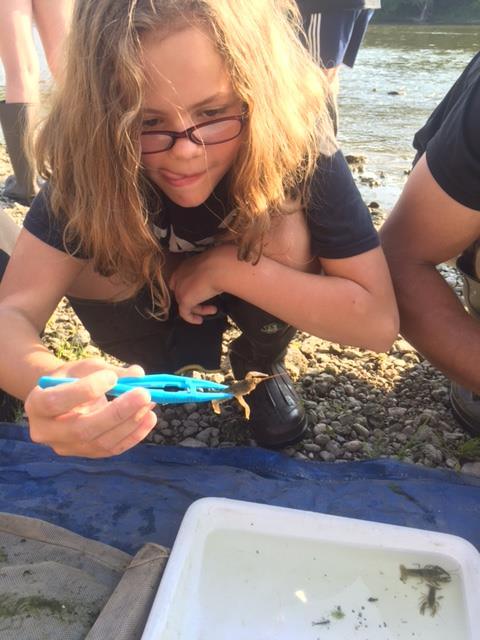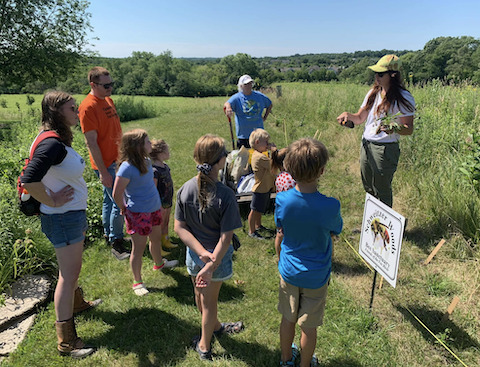Can you resist watching young puppies and kittens play? Their pouncing and wrestling reflect instinctive drives that once were important for survival but are no longer required for our furry pets since the advent of reliable “bowl feeding” by humans. In the wild, adult animals pass on knowledge to offspring to guide their behavior to sustain their lives. While this may also be true of humans, passing of knowledge directly tied to survival in nature is rare. Sustaining food and warmth kept our communities alive and thriving. Our distant ancestors cultivated a reverence and gratitude for our natural surroundings, as Native Americans did and continue to do. Where can we get lessons now and develop a love of the natural world?
Biophilia
I was fortunate to spend my adolescence in a place where I could play in the natural environment, specifically, a DuPage County Forest Preserve. Although my father had an upbringing of hunting and fishing, he did not pass it along as a part of our heritage. We lived in a suburban setting and substituted team sports for lessons in nature. As I played in creeks and woods in my neighborhood, I felt very comfortable. My adventures (often alone) were fun, exciting, and safe. I didn’t learn survival skills, but I developed a relationship with the natural world surrounding me that led me to a professional career in environmental education and personal love for outdoor recreation. Biophilia directed my life choices.
~~~~~~~~~~~~~~~~~~~~~~~~~~~~~~~~~~~~~~~~~~~~~~~~~~~~~~~~~~~~
Biophilia is a concept coined by Harvard naturalist E.O. Wilson. He defined it as “a hypothetical human tendency to interact or be closely associated with other forms of life in nature; a desire or tendency to commune with nature. A desire to interact and care for nature.”
~~~~~~~~~~~~~~~~~~~~~~~~~~~~~~~~~~~~~~~~~~~~~~~~~~~~~~~~~~~~
Youth (and their parents) today have a deficit in biophilia. We have had generations of being disconnected from the natural environment because of inopportunity, fear, or distraction by the screen. We have a wealth of information at our fingertips, but we often lack the physical presence where the real wow and wonder await us.
At Friends of the Fox River (FOTFR) we focus upon providing those experiences. Our primary resources are the animals that dwell in wetlands and streams. Finding and inspecting a tiny dragonfly larva or a crayfish fosters immediate realization of the delicacy of life all around us. For many (maybe most), a FOTFR outing is the first experience for these children at this level of connection to their natural surroundings. We instinctively understand, and the science supports us, that experiences in nature have physical, mental, and emotional health benefits. Click here to learn more.
Caring
In-the-stream types of experiences are essential for developing ourselves as planetary citizens. The film trailer for Watershed Warriors, ends with the words, “We nurture and protect things that we care about. So the first step is inspiring people to care.” We all have the biophilic urge, but need opportunities to nurture it. This is the foundation for FOTFR’s quest of “building a watershed community of caretakers”. You are invited to join us in this effort. It is fun and very rewarding.
Join the Team
FOTFR has opportunities for volunteers (and some paid positions) to assist in providing educational experiences at community events, with schools this spring, summer programming, and more. Please don’t be deterred by your perceived lack of knowledge or experience. I have been an environmental educator for 50 years, and I find joy in not knowing all the answers and learning along with children. It’s the experience that drives the desire to know more. Consider contacting FOTFR to discuss how you may get involved. Info@FOTFR.org There is a great need and demand for our services, but we are primarily limited by our human resources.




